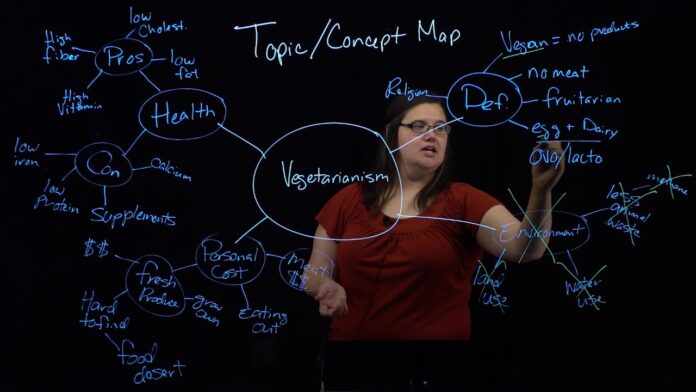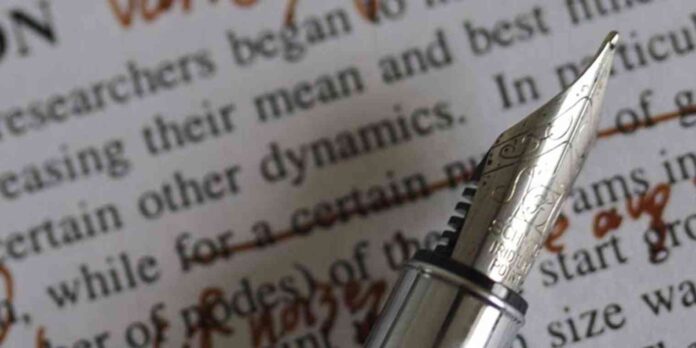
As an aspiring academic, you may think to yourself – writing a thesis paper is hard, but typing out a thesis statement must be super easy. After all, it’s simply an abridged version of what you’ll, later on, be writing in full, right?
Wrong!
Your thesis statement is a critical component of your paper – in fact, it’s arguably the most important part. This is because it encapsulates the argument or main point that you’re trying to make throughout the rest of your work. As such, even a small mistake can jeopardize the effectiveness of your entire paper.
To help you avoid this, we’ve compiled a list of tips on how to write a thesis statement without making any mistakes.
Keep It Short And Sweet
Your thesis statement should be concise and to the point – anything beyond a sentence or two is likely to be too wordy and convoluted for readers to understand. Furthermore, try to make sure that your statement is free of any unnecessary filler words or phrases as every word should contribute to the overall meaning and purpose of the statement.
Invoke Critical Thinking In Your Readers

What’s the point of a thesis statement if it isn’t though provoking? A good thesis statement should pique the curiosity of your readers and make them want to learn more about your paper. As such, avoid simply restating information or making factual statements as your thesis – instead, try to take a stance on a slightly controversial issue or offer a new perspective on a familiar topic.
Stay Away From Using Vague Or Ambiguous Language
At the same time, try and make your thesis comprehensible. This means using language that is clear and free of any ambiguity. Jargon, technical terms, and overly complex sentence structures will only serve to confuse your reader and make it difficult for them to follow your argument. So, wherever possible, use simple language to get your point across.
Start With A Rough Draft
Think of your thesis statement as a chunk of stone and think of yourself as Gian Lorenzo Bernini. Just as the Italian artist took a piece of marble and transformed it into one of the most famous sculptures in history, you too can take a rough draft of your thesis statement and turn it into something beautiful.
Don’t be afraid to revise and edit your statement as many times as necessary until you’re happy with the final product. Remember, this is your thesis statement – it’s a reflection of you and your work, so take the time to make sure that it’s perfect.
Avoid Making Generalizations

What you’ll also want to do is avoid making sweeping statements or generalizations in your thesis statement. Not only are these often untrue, but they also make your argument seem less credible. So, rather than saying something like “all people are selfish”, try to be more specific by saying something like “some people can be selfish in certain situations” – only not this ambiguously.
Make Sure It Is Well-Argued And Well-Supported
Your thesis must reside on a solid foundation if it is to be effective. This means that your statement should be well-argued and supported by evidence. So, before you commit your thesis to paper (or screen), take the time to do some research and develop a strong argument for your position.
Take All The Help You Can Get
Who’s to say you can’t ask for help when drafting a statement? If you’re struggling to come up with a good thesis statement on your own, then don’t hesitate to seek guidance from your professor or peers. After all, they’ve probably written a thesis statement or two in their time and can offer some valuable insights.
And, if all else fails, there are professionals doing these for a living. You can always hire a professional editor or an academic consultant to help you fine-tune your thesis statement or help you come up with an idea. Some of them reside over at https://www.essaystank.com/.
Ensure Your Thesis Is Interest-Piquing, But Not Controversial

As we’ve said earlier, a good thesis statement piques the curiosity of your reader. However, you don’t want to make it so controversial that people are turned off by your paper before they’ve even read it. So, while it’s important to have a strong opinion, try and avoid taking a stance on highly sensitive or polarizing topics.
State Your Position Upfront
There’s nothing worse than reading a paper only to find out halfway through that the author has changed their position or is wavering on their opinion. So, from the very beginning, make it clear what your position is and make sure your statement mirrors your stance throughout the rest of the paper.
Be Clear And Concise, But Not Boring
Your thesis statement should be clear and to the point – but that doesn’t mean it has to be boring. In fact, a good thesis statement often takes the form of a declarative sentence, meaning that it states your position upfront in a way that is easy for your reader to understand.
However, you don’t want to be too brief either. A thesis statement that is too short is likely to be vague and leave your reader scratching their head. So, aim for something in the middle – something that’s clear and concise, but also packs a punch.
Make Sure Your Thesis Statement Is Error-Free

Of course, one of the most important things to do when writing a thesis statement is to make sure that it is free of any grammar or spelling errors. After all, your statement is a reflection of you and your work – and you want to make sure that it’s presented in the best possible light.
To this end, we suggest running your statement through a spell checker and/or grammar checker before you commit it to paper. Alternatively, you could also ask a friend or family member to read it over for you and point out any errors they spot.
Proofread And Revise
Once you’ve written your thesis statement, it’s essential to proofread and revise it as necessary. After all, no one is perfect and there’s always room for improvement. So, if you spot any errors or ways to improve your statement, don’t hesitate to make the necessary changes. Just make sure you don’t ponder over it for so long that it becomes utterly meaningless.
Conclusion
And there you have it – a foolproof guide to writing a thesis statement without making any mistakes. What do you think? Did we make any mistakes?








